Unavailable
Così fan tutte is currently unavailable
We can no longer provide this arrangement through Sheet Music Stores. The listing stays online so you can learn about the piece and explore alternatives.
Try these next steps
- Discover similar sheet music curated for you below.
- Search for “Così fan tutte” across our catalog.
About this arrangement
Concert Band/Harmonie - Grade 5 SKU: BT.DHP-1053939-010 Overture. Composed by Wolfgang Amadeus Mozart. The Great Classics. Transcription. Set (Score & Parts). Composed 2005. De Haske Publications #DHP 1053939-010. Published by De Haske Publications (BT.DHP-1053939-010). 9x12 inches. English-German-French-Dutch.In 1786 Mozart composed his wonderful opera Le Nozze di Figaro (KV 492). The Italian libretto, based on the play Le mariage de Figaro by Beaumarchais, was written by Lorenzo da Ponte—who also made the libretti of Mozart’s opera’s Don Giovanni and Così fan tutte. In the opera Le Nozze di Figaro, Count Almaviva tries to seduce the fiancée of Figaro, his valet. Eventually, through four acts full of complicated intrigue, he is outwitted. In his music, Mozart—at times in a humorous way—reflects the numerous social and erotic intrigues with both empathy and insight. The brilliant overture is just as vivacious and witty as the opera itself. Mozart delightfullyanticipates the passion and playful love that is to come. The skillful transcription for concert band by Tohru Takahashi certainly does justice to this appealing music. De muziek van Mozarts Così fan tutte werd door tijdgenoten meteen bejubeld. Deze luisterrijke opera is vandaag de dag nog steeds geliefd en wordt wereldwijd veel uitgevoerd. Het is heel goed mogelijk dat de vrij korte ouverture vanCosì fan tutte is bedoeld als sfeerbeschrijving van een koffiehuis waarin heftig gedebatteerd wordt. De herhaalde en stijgende melodieën zouden lachen en discussiëren kunnen suggereren. Deze suggestie wordt nog versterktdoor de dynamische contrasten in het stuk.Così fan tutte ist eine der späten Opern Mozarts und sicherlich auch eine seiner besten. Così fan tutte bedeutet so viel wie so sind sie alle“ und bezieht sich auf die Unzuverlässigkeit des weiblichen Geschlechts in Liebesdingen. Dies war ein ziemlich heikles Thema zu Mozarts Zeiten und es ist daher kaum verwunderlich, dass die Oper als unmoralisch galt, dennoch von Beginn an sehr beliebt war. Wil van der Beek setzte die eher kurze, dynamisch kontrastive Ouvertüre für Blasorchester um.
Related sheet music

Così Fan Tutte by Mozart - Overture for Flute Choir (arr. Fabio Barnaba)
wolfgang amadeus mozart, fabio barnaba
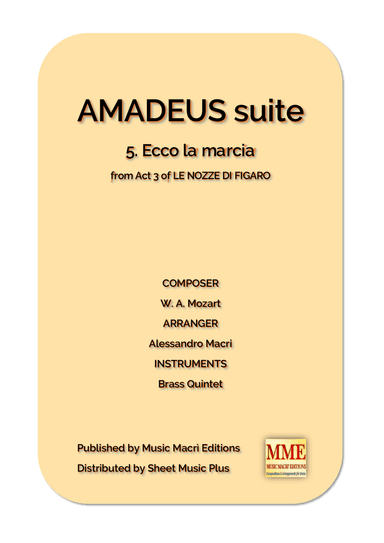
AMADEUS suite - 5. Ecco la marcia from Act 3 of LE NOZZE DI FIGARO
wolfgang amadeus mozart

Così Fan Tutte by Mozart - Overture for Flute Choir
wolfgang amadeus mozart
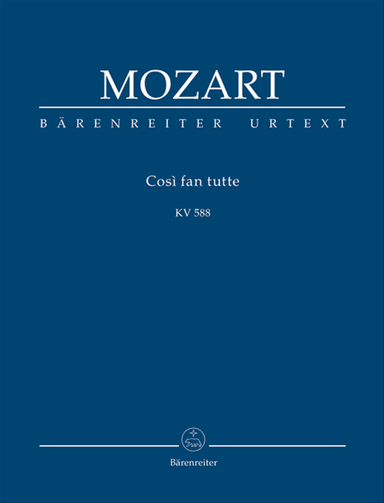
Così fan tutte ossia La scuola degli amanti, KV 588
wolfgang amadeus mozart

Arias for Baritone
various
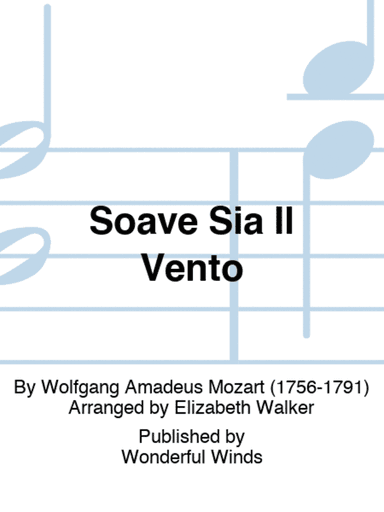
Soave Sia Il Vento
wolfgang amadeus mozart
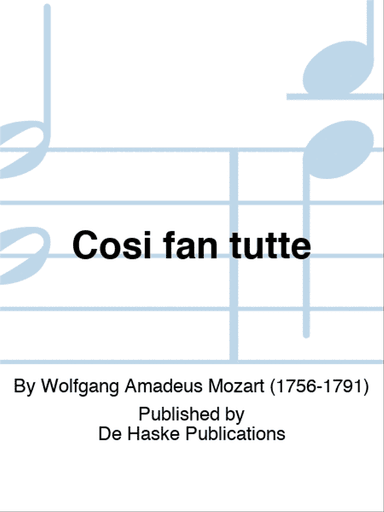
Così fan tutte

Mozart Una donna a quindici anni (Opera Così fan tutte) Piano Accompaniment (slowly)
wolfgang amadeus mozart

Aria: Soave sia il vento from the opera: Così fan tutte (arrangement for 6 recorders)
wolfgang amadeus mozart, gil garty

Operatic Anthology – Volume 1
various
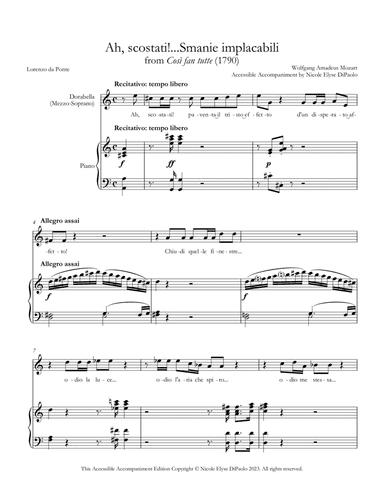
Ah, scostati!...Smanie implacabili (Dorabella) from Così fan tutte - Accessible Accompaniments Ed.
wolfgang amadeus mozart

Terzettino
wolfgang amadeus mozart, emile naoumoff